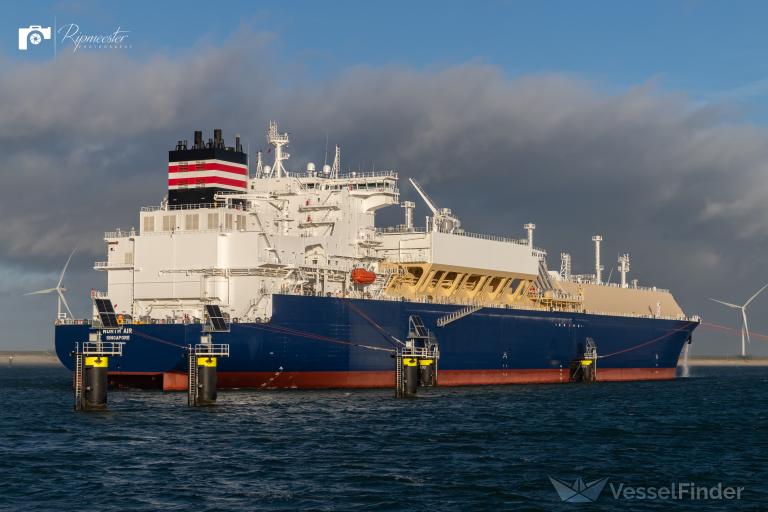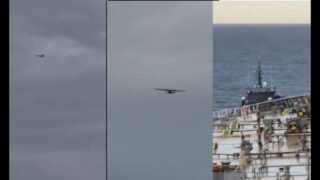
Russia’s navy-escorted tanker targets Bundeswehr helicopter with warning flares in Baltic
On 4 December, Zeit Online reported an incident in the Baltic Sea involving a German Bundeswehr helicopter and a Russian tanker. Germany’s Foreign Minister Annalena Baerbock reportedly said that the crew of the Russian tanker fired signal ammunition at the helicopter, likely to deter its actions. The helicopter was reportedly conducting surveillance over the area, according to dpa.
To bypass the Western sanctions on Russian oil exports over its invasion of Ukraine, Moscow uses the so-called “shadow fleet” of tankers. Amid increased Baltic Sea surveillance by NATO to protect critical infrastructure, recent damage to two communication cables has sparked suspicions of Russian sabotage, with Moscow denying involvement despite NATO’s accusations of hybrid attacks since the 2022 full-scale invasion of Ukraine.
A spokesperson from Germany’s Ministry of Defense declined to comment on the specific details of the incident, Zeit said. However, the spokesperson noted that violations of air or sea regulations were not uncommon and “then it is a matter of the navy or the air force reacting calmly and de-escalating.”
Signal ammunition is generally used in emergency situations, and it is rare for it to be fired outside such contexts. Baerbock mentioned the tanker was reportedly accompanied by a Russian warship during the incident, though no specific details were provided about the warship’s role.
Baerbock also raised concerns about ships operating in the Baltic Sea that may be attempting to circumvent sanctions related to Russia’s invasion of Ukraine. While no direct evidence was found to link the tanker involved in the incident to Russia’s sanctions-evading “shadow fleet,” NATO sources indicated that the German frigate with the on-board helicopter was not operating under NATO’s authority during the event.
In light of this and other regional concerns, Baerbock announced plans to increase surveillance in the Baltic Sea. This includes focusing on critical infrastructure such as pipelines and data cables, which are increasingly vulnerable to hybrid threats from Russia and its allies.
Related:












